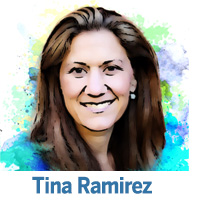Tensions and conflicts across the Middle East continue to be escalated and exacerbated, especially in the Gaza Strip. In most cases, if not every case, these conflicts burn from generations-old disputes and, ultimately, from a lack of recognition of every individual’s inherent value and freedom of conscience.
 For too long, foreign policy – including that of the United States – has focused on fixing the external, immediate and superficial issues in the region. But the rising wave of violence across the Middle East underscores the urgent need for a shift in policy.
For too long, foreign policy – including that of the United States – has focused on fixing the external, immediate and superficial issues in the region. But the rising wave of violence across the Middle East underscores the urgent need for a shift in policy.
If we instead focus on working to address the root causes of conflict – by addressing the deep-seated bias, fear, misperceptions, and mistrust that individuals and communities have of others – we will be able to build a culture of understanding and respect for human dignity where lasting peace is possible.
For the past decade, I have worked in conflict zones throughout the region to counter intolerance and violence against people of different backgrounds and beliefs, training leaders in more than 30 countries to foster dialogue and advance human rights. Our efforts have helped communities traumatized by terror overcome deep-rooted distinctions, promoting dignity, unity and freedom through education and pluralist strategies.
By promoting policies that prioritize respect for human dignity and freedom of conscience among people of diverse perspectives and values, there will always be an opportunity to build a foundation for peace.
When implementing training programs in Iraq we are especially cognizant of working within the existing cultural frameworks. For example, in this recent iteration of the simulation, we removed a question about religious education in public schools, recognizing that this is a hot-button, politicized issue for the people we are working with and would distract from the overall point.
We will never, and should never, agree on everything. But if we agree on two things – to defend the freedoms we are all hardwired to experience and recognize the value we all deserve by virtue of birth – we can change the trajectory of entire nations
Very often, with governmental, missionary and other international organizations, these kinds of considerations are secondary to the myriad initiatives they want to push. As an example, the US Agency for International Development has added an LGBTQI+ inclusion rider to its development projects, which has alienated people and governments in many of the countries where the agency is attempting to work.
Pushing any particular religious or political line item into a complex cultural context is one of the many ways these projects fail to advance peace and pluralism.
By focusing instead on every individual’s inherent value and right to be different, the right to think and worship differently from one another, we can build a foundation upon which people can start to not only appreciate the rights and lives of those around them (even the rights of those who they perceive as “different” from them) but even begin to stand up for those rights.
Pushing others’ cultural norms and values on another culture has not and will not work, but teaching them to respect the values of all does. It is, again, the only thing we need to agree on.
The conflicts of centuries gone by do not have to be the conflicts of our future. We will never, and should never, agree on everything. But if we agree on two things – to defend the freedoms we are all hardwired to experience and recognize the value we all deserve by virtue of birth – we can change the trajectory of entire nations.
The author is Founder and President of Hardwired Global and Templeton Religion Trust Grantee, with over 20 years of experience as a teacher, foreign policy expert, and authority on international human rights law and religious freedom. Previously, she served as a policy advisor for the US Commission on International Religious Freedom, a foreign policy advisor for the US Congress.
The views do not necessarily reflect those of China Daily.


